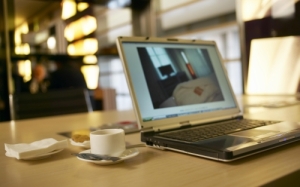“…Hotels also are prime targets for people looking to steal financial data. In a study of 200 data-breach cases,  Trustwave’s SpiderLabs, the online security company’s research arm, found 38 percent occurred at hotels or resorts…”
Trustwave’s SpiderLabs, the online security company’s research arm, found 38 percent occurred at hotels or resorts…”
Two key challenges for travelers involve the use of unsecured wireless networks at hotels, airports and other public venues and the infiltration of smartphones through Bluetooth technology.
Identity theft can be a rude awakening for many business travelers. Last year, identity theft made up 19 percent of the 1.3 million complaints stored in the Consumer Sentinel Network, a secure online database available to law-enforcement agencies.
Experts say business travelers are especially vulnerable because they increasingly rely on electronic devices that easily can be lost or hacked. Credant Technologies, a data-protection company, found that travelers have lost 11,000 mobile devices at the busiest U.S. airports this year, 37.5 percent of them laptops and 37.2 percent tablets or smartphones.
“You are 15 times more likely to have your identity stolen than to have your car broken into,” said Todd Davis, chairman and CEO of LifeLock, an identity-theft protection company.


The only effective way to protect wifi communications in hotspots is through the use of a VPN, or Virtual Private Network. The original source article points out that corporations provide VPNs for their employees who travel, but individuals should also be using personal VPNs. Given our mobile lifestyle and increasing ubiquity of hotspots, nearly everyone should subscribe to a VPN service, just like they have anti-virus and firewalls on their computers.
We provide one called Private Wifi (www.privatewifi.com), which is simple to use and inexpensive.
Kent Lawson, CEO, Private Communications Corp.
The only effective way to protect wifi communications in hotspots is through the use of a VPN, or Virtual Private Network. The original source article points out that corporations provide VPNs for their employees who travel, but individuals should also be using personal VPNs. Given our mobile lifestyle and increasing ubiquity of hotspots, nearly everyone should subscribe to a VPN service, just like they have anti-virus and firewalls on their computers.
We provide one called Private Wifi (www.privatewifi.com), which is simple to use and inexpensive.
Kent Lawson, CEO, Private Communications Corp.